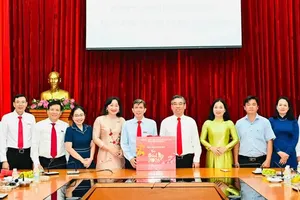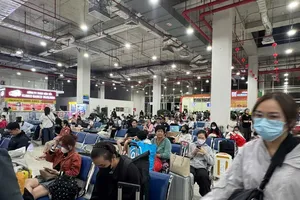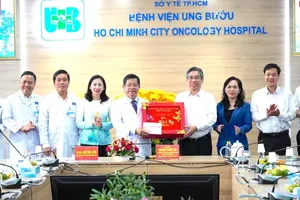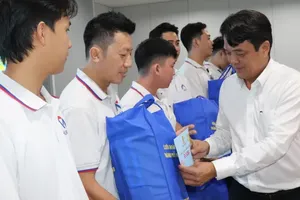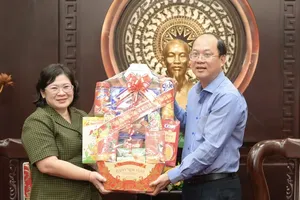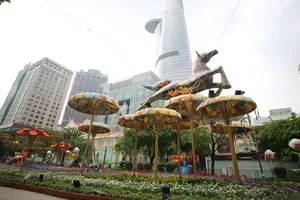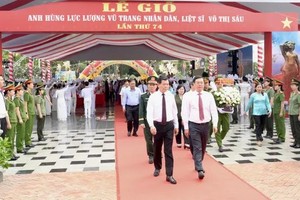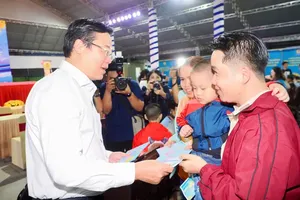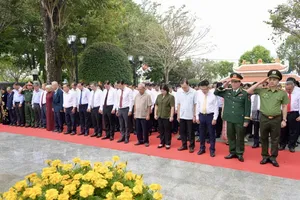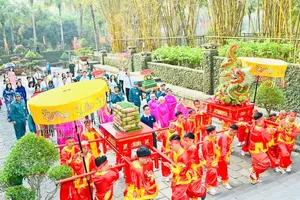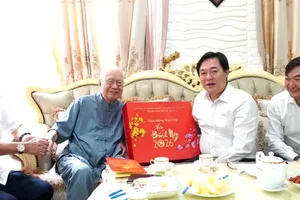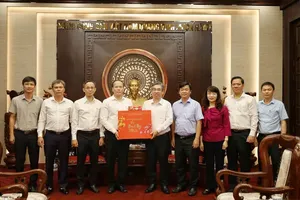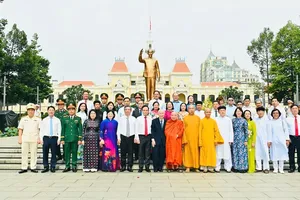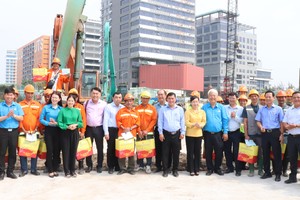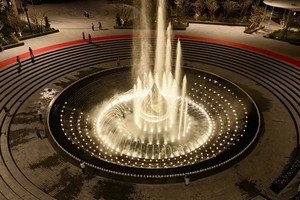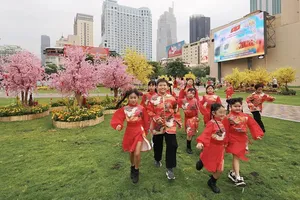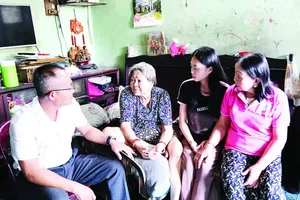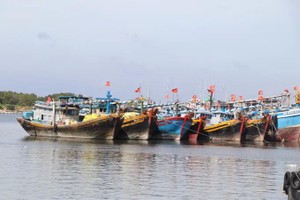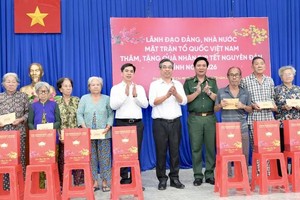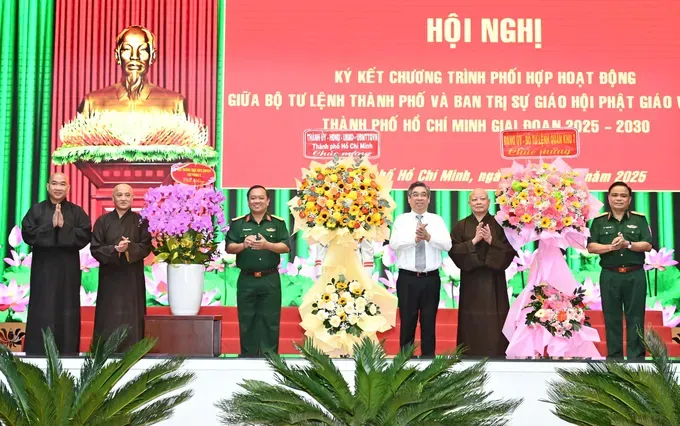
During the 2021–2025 period, the Ho Chi Minh City High Command and the Executive Board of the Vietnam Buddhist Sangha in Ho Chi Minh City signed a cooperation program. Through this partnership, the Ho Chi Minh City armed forces have actively collaborated with religious organizations, especially the Vietnam Buddhist Sangha in the city, to implement numerous social welfare and charitable programs, as well as initiatives aimed at building cultural life at the grassroots level.
At the conference, Most Venerable Thich Le Trang, Vice Chairman of the Executive Council cum Head of the Central Ritual Committee of the Vietnam Buddhist Sangha and Head of the Executive Board of the Vietnam Buddhist Sangha in Ho Chi Minh City, pledged that the Vietnam Buddhist Sangha in the city would continue to mobilize and encourage monks, nuns, Buddhists, and the public to uphold their sense of responsibility in social welfare and charitable activities, embodying the Vietnamese people's tradition of "When drinking water, remember its source."
On behalf of the Standing Committee of the Vietnam Buddhist Sangha in Ho Chi Minh City, Most Venerable Thich Le Trang expressed a firm commitment to stand alongside the Ho Chi Minh City High Command in future activities aimed at benefiting the country and its people.
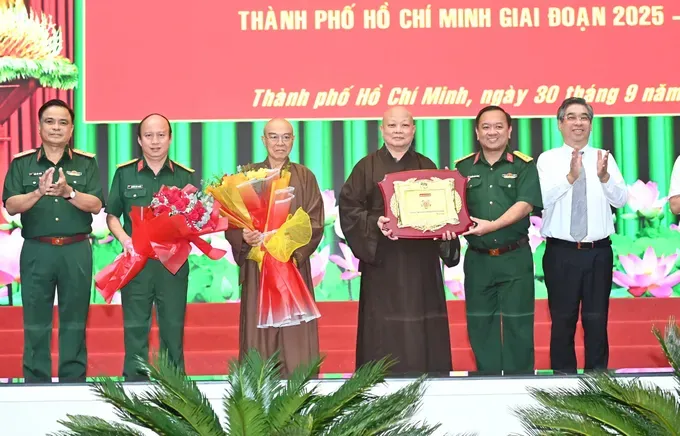
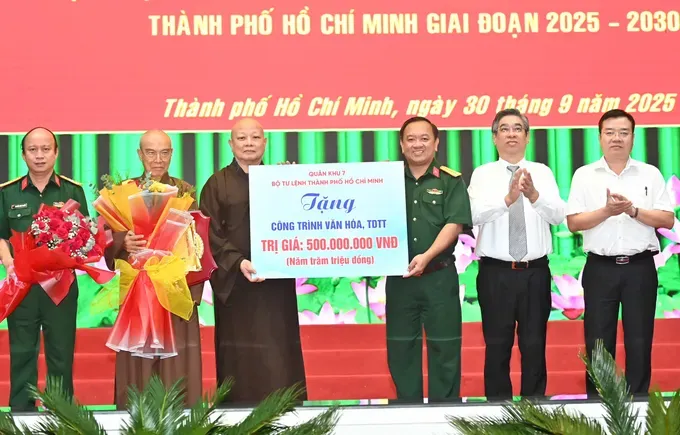
Speaking at the conference, Vice Secretary of the City Party Committee and Chairman of the Vietnam Fatherland Front Committee in the city, Nguyen Phuoc Loc, praised the cooperation program between the Ho Chi Minh City High Command and the Vietnam Buddhist Sangha. To ensure the program’s success, he urged both parties to maintain close solidarity and focus on effectively implementing several key initiatives. He emphasized the importance of regular information exchange to promptly address any challenges and to ensure the efficient execution of collaborative activities.
Additionally, efforts will be intensified to promote awareness and responsibility through education and outreach, fostering trust and solidarity among officials, soldiers, monks, Buddhists, and the wider community. Throughout the implementation process, both parties are expected to conduct annual reviews to evaluate the results of their cooperation, promptly recognizing and rewarding individuals and groups who perform excellently. Furthermore, successful approaches and innovative, effective models should be widely disseminated and replicated.
